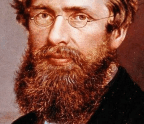



In 1838, during a debate about Queen Victoria’s forthcoming coronation, the rather radical Earl Fitzwilliam declared that “coronations were fit only for barbarous or semi-barbarous ages, for periods when crowns were won and lost by unruly violence and ferocious contests”. What, he wondered, was the point of an extravagant show when Victoria’s legitimacy was not in doubt, and when she became queen as soon as William IV was dead?
Monarchs have long worried about what functions such royal rituals actually perform, or why they might need them. A look at the various coronations and other ceremonies staged by and for British rulers through the centuries reveals much about both the motives and personalities of those kings and queens, and the power and impact of such events.
In the 13th century, Henry III pondered the ways in which ceremony elevated him into the sphere of the sacred. Robert Grosseteste, bishop of Lincoln, had to tell him that while being anointed meant he was “above his fellows”, he was nowhere near the level of a priest. Four centuries later, Charles I worried about being only ceremony: “We may have swords and maces carried before us, and please our self with the sight of a crown and sceptre,” he said, but without “true and real power, we should remain but the outside, but the picture, but the sign of a king.”
Today, the fact that royal ceremonies are not displays of “true and real” political influence is what has ensured the survival of both




